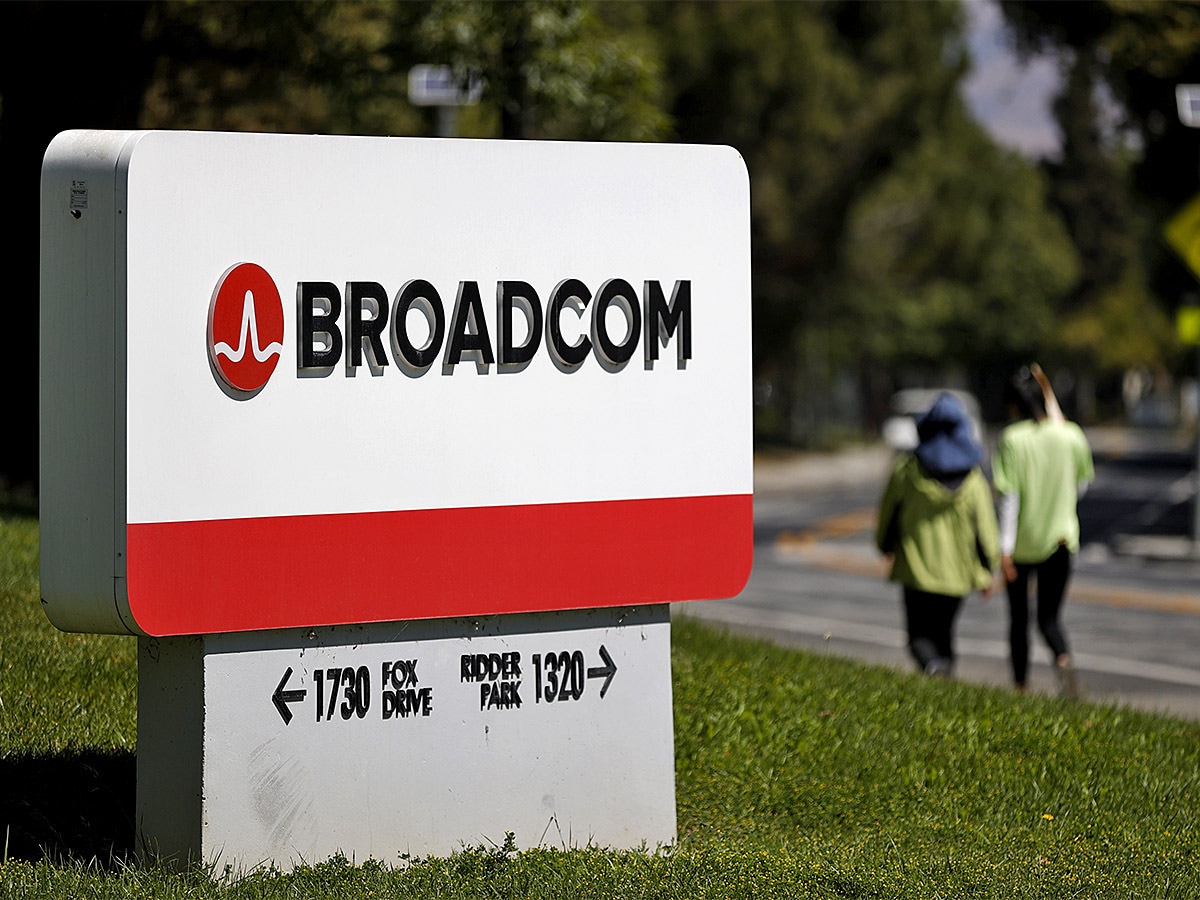Apple has a history of breaking off partnerships with chipmakers. For example, in 2020, it switched out Intel processors for its own M1 chips in MacBook Air laptops and other products. Broadcom could get the chop next.
– Apple is Broadcom's biggest customer, accounting for approximately 20% of FY22 revenue
– The move could result in a 3–4% decrease in 2025 earnings per share, according to Bernstein's Stacy Rasgon
– The chipmaker is the biggest holding in the Pacer Data and Digital Revolution ETF
Apple [AAPL] is reportedly set to drop California-based chip maker Broadcom [AVGO] by 2025 to make more of its chips in-house.
The Cupertino tech giant is Broadcom's biggest customer, providing it with WiFi and Bluetooth connectivity chips for its iPhones and advanced chips for more complicated tasks such as wireless charging. Reports suggest Apple will also phase out cellular modem chips from Qualcomm [QCOM] and replace them with its own.
In January 2020, Apple struck a $15bn deal for Broadcom to supply it with components through the middle of 2023. The decision to move chip development away from Broadcom and develop in-house talent and expertise makes financial sense for Apple but could very well hurt the chipmaker.
Broadcom's share price dropped by less than half a percent in reaction to the news on 10 January, though it has since more than made up ground: the stock is down 0.2% over the past year but up 3.6% year-to-date.
The risks of high exposure
According to Broadcom's most recent annual report, Apple accounted for approximately 20% of total revenue in fiscal year 2022, while its top five customers together contributed 35%.
"[I]f Apple were to take some of the technology that they acquire from Broadcom in-house, that would be significant. To other companies like Qualcomm, Apple is a little bit lower in terms of overall exposure," Ruben Roy, managing director of equity research at Stifel, told Yahoo Finance Live.
"Over the last 10 years or so, Apple certainly has brought in a lot more of this type of technology in-house, and that's a trend that will likely continue," Roy added.
Despite this, Broadcom's chips aren't going to be phased out overnight, so the impact will be minimal in the near-term.
Bernstein analyst Stacy Rasgon thinks that the reports may be a tactic from Apple to negotiate an improved deal with Broadcom.
"While Apple's loyalty (or lack thereof) is always part of the bear case on Broadcom's stock, we do not believe relevant exposure here is hugely material," Rasgon wrote in a note seen by Barron's. He reiterated an 'outperform' rating on Broadcom.
Near-term growth remains robust
Although Rasgon is bullish on Broadcom, he believes that if Apple is serious about replacing Broadcom's chips, especially the radiofrequency (RF) components it supplies, then this could lead to a 3–4% decrease in 2025 earnings per share.
Rasgon wrote in his note that the "RF revenue would be much more difficult to replace" than the revenue from Bluetooth connectivity chips.
In the near-term, despite inflation and the risk of recession leading to softer demand for corporate software, Broadcom's fourth-quarter 2022 numbers allayed any concerns. At $8.9bn, revenue was up 21% year-over-year.
"This growth was driven by our strong partnerships with customers and accelerated adoption of our next generation technologies," commented president and CEO Hock Tan, who added that there has been "strong demand from hyperscale, service providers and enterprise."
Revenue for Q1 2023 is forecast to grow by 16% year-on-year, suggesting that spending on Broadcom's products remains resilient.
Funds in focus: Pacer Data and Digital Revolution ETF
According to a KPMG survey, 65% of supply chain executives believe that the semiconductor shortage will ease in 2023, with only 20% expecting it to extend into 2024. One way investors can position themselves for a potential rebound is by focusing on ETFs that hold Broadcom.
The stock is the top holding in the Pacer Data and Digital Revolution ETF [TRFK], with a weighting of 11.20% as of 13 January. The fund is down 2.9% in the past year but up 4.7% since the start of 2023.
It's also the top holding in the Invesco PHLX Semiconductor ETF [SOXQ], with a smaller weighting of 8.51%. The fund is down 27.4% in the past year but up 10.6% since the start of 2023.
The ProShares Ultra Semiconductors ETF [USD] has Broadcom as its second-biggest holding, weighing 10.53%. The fund is down 59.4% in the past year but up 20.4% since the start of 2023.
Disclaimer Past performance is not a reliable indicator of future results.
CMC Markets is an execution-only service provider. The material (whether or not it states any opinions) is for general information purposes only, and does not take into account your personal circumstances or objectives. Nothing in this material is (or should be considered to be) financial, investment or other advice on which reliance should be placed. No opinion given in the material constitutes a recommendation by CMC Markets or the author that any particular investment, security, transaction or investment strategy is suitable for any specific person.
The material has not been prepared in accordance with legal requirements designed to promote the independence of investment research. Although we are not specifically prevented from dealing before providing this material, we do not seek to take advantage of the material prior to its dissemination.
CMC Markets does not endorse or offer opinion on the trading strategies used by the author. Their trading strategies do not guarantee any return and CMC Markets shall not be held responsible for any loss that you may incur, either directly or indirectly, arising from any investment based on any information contained herein.
*Tax treatment depends on individual circumstances and can change or may differ in a jurisdiction other than the UK.
Continue reading for FREE
- Includes free newsletter updates, unsubscribe anytime. Privacy policy





